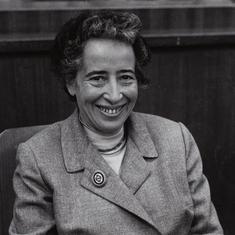In the aftermath Motiur Rehman Nizami’ execution in Bangladesh, the question being asked is whether the country has permanently buried the ghosts of the 1971 Liberation War.
For this to happen, it is clear that despite incriminating evidence against Nizami for his role in the systematic execution of intellectuals on December 14, 1971 and other persons accused of mass atrocities during the Liberation War, the Bangladeshi authorities must follow the rule of law and ensure that its International Crimes Tribunal respects well-recognised fair trial norms.
Bangladesh’s Liberation War, as it came to be known, was grounded on a self-determination movement of Bengali national identity and language in what was then East Pakistan.
The nine-month long conflict between the Bengali freedom fighters and the Pakistani Army, supported by pro-Pakistani paramilitary, witnessed a large number of deaths – some estimates put the final death toll close to 3,000,000 – while countless others were tortured or raped.
To put this into perspective, the death toll from the Liberation War was higher than the Yugoslavia conflicts, and the Sierra Leone Civil War put together.
It was during the dying embers of the war that Nizamis’s pro-Pakistani paramilitary force, Al-Badr, was instrumental in the execution of several Bengali intellectuals.
Not surprisingly, the robust Bangladeshi national identity that we are familiar with was fashioned in the aftermath of such pogroms.
International Crimes Tribunal
Unfortunately, it took almost four decades for the slow wheels of justice to finally start moving in Bangladesh – in 2009-10.
The Awami League, delivering on its election manifesto promise, established the ICT, a special domestic tribunal with legal mandate to bring an end to the impunity for crimes committed during the Liberation War.
The establishment of the ICT was generally received with some skepticism. Nizami was one of the nine convicted by this tribunal for several counts of torture, murder, rape as crimes against humanity.
Legal experts had feared that the absence of fair trial norms would produce show trials, but even those could not act to satiate public sentiments. Abdul Quader Molla’s life sentence by the ICT was perceived as lenient, leading to the Shahbagh Protests of 2013 in
Dhaka demanding his execution along with future convicted war
criminals – something that the statute books back then did not allow. He was finally executed on December 12, 2013.
Observers such as Human Rights Watch categorically informed the Bangladesh government of its failure to follow its international legal obligations, which require changes to certain provisions of the Constitution and the International Crimes (Tribunal) Act.
These include retrospective introduction of capital punishment, legal ambiguity in the definition of the core crimes, reversing the burden of proof and the denial of Constitutional Fundamental Rights to alleged war criminals amongst other substantive and procedural problems.
Fair judicial process
Separating the passion and politics from the judicial process is imperative, and perhaps it is the only way that the ICT can ensure that justice is not only done, but also seen to be done.
In any post-conflict society the need for fair trials especially for mass atrocity crimes is imperative as it serves three important roles.
First, it provides confirmation to its citizens and the international community that the judicial processes are mature enough to ensure an independent and fair trial of those who are most responsible for these crimes.
Second, institutions such as the ICT have the opportunity to create a legacy of independent and fair trials in the country.
Third, it does not leave an iota of doubt that alleged criminals were held responsible for their crimes by independent judges and through a fair trial.
The way ahead
Bangladeshi authorities still have the opportunity to reform the ICT. It can do so in several ways.
Amending the relevant acts, malicious constitutional provisions relating to war criminals and the rules of procedure of the ICT, along with a change in political will are perhaps the easiest method.
Another option available to the Bangladeshi authorities is the internationalisation of the domestic ICT. Countries such as Bosnia & Herzegovina, and the Gambia have successfully implemented a “hybrid” criminal justice system.
This could be done by involving international judges, prosecutors, and defence lawyers with their Bangladeshi counterparts, within the framework of Bangladeshi law. The amalgamation of foreign and domestic lawyers in the prosecution team, defence team and judges’ chambers will act as an internal method of checks and balances.
Perhaps the larger question is whether other forms of transitional justice that do not involve individual criminal responsibility would better serve the situation in Bangladesh.
There is no shortage of international offers to Bangladesh in its efforts to address questions of accountability and justice for the mass atrocities committed during the Liberation War. While the decision is theirs to take, Bangladeshi authorities must keep in mind that failure to take the right decision will only act as a catalyst for future protests, counter protests, civil unrest, and political violence.
Srinjoy Sarkar is a faculty member at Jindal Global Law School and has worked extensively on the human rights situation in Bangladesh as a Law Fellow with Robert F Kennedy Human Rights, Washington DC










